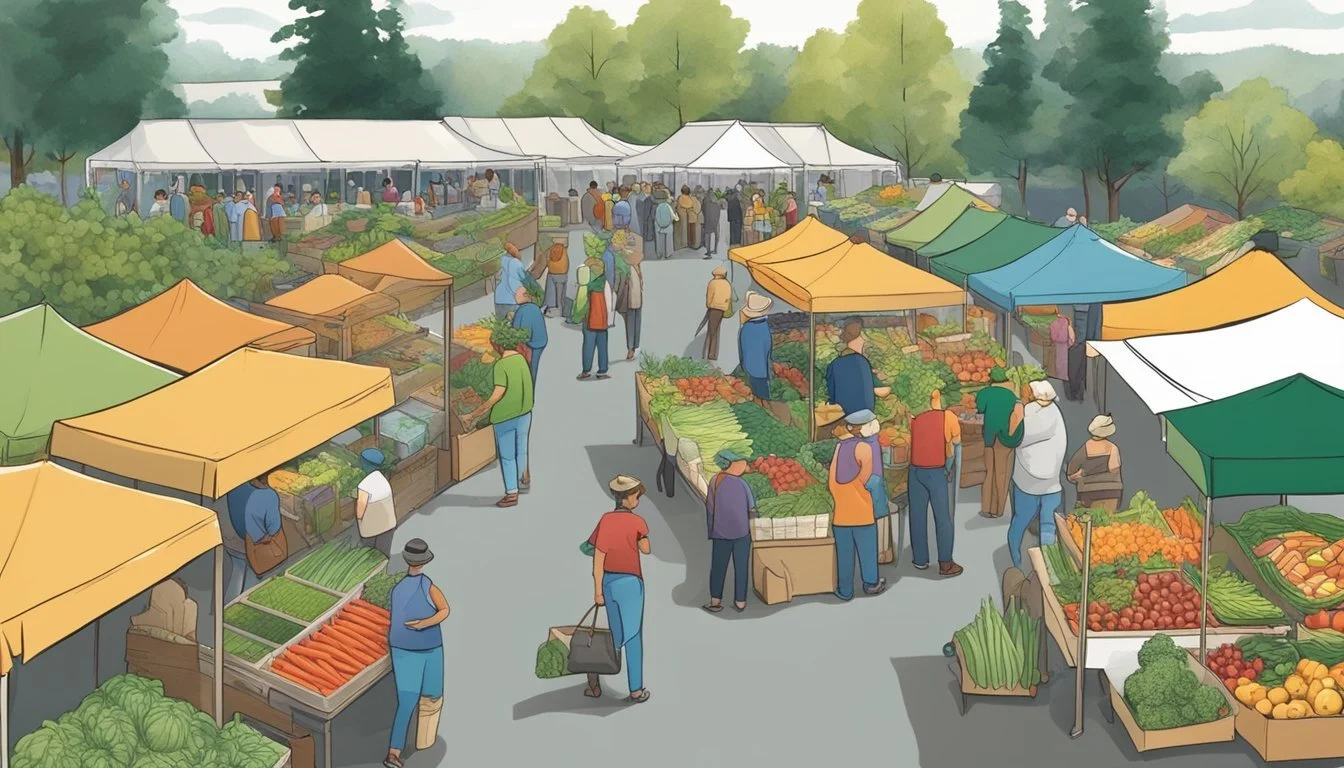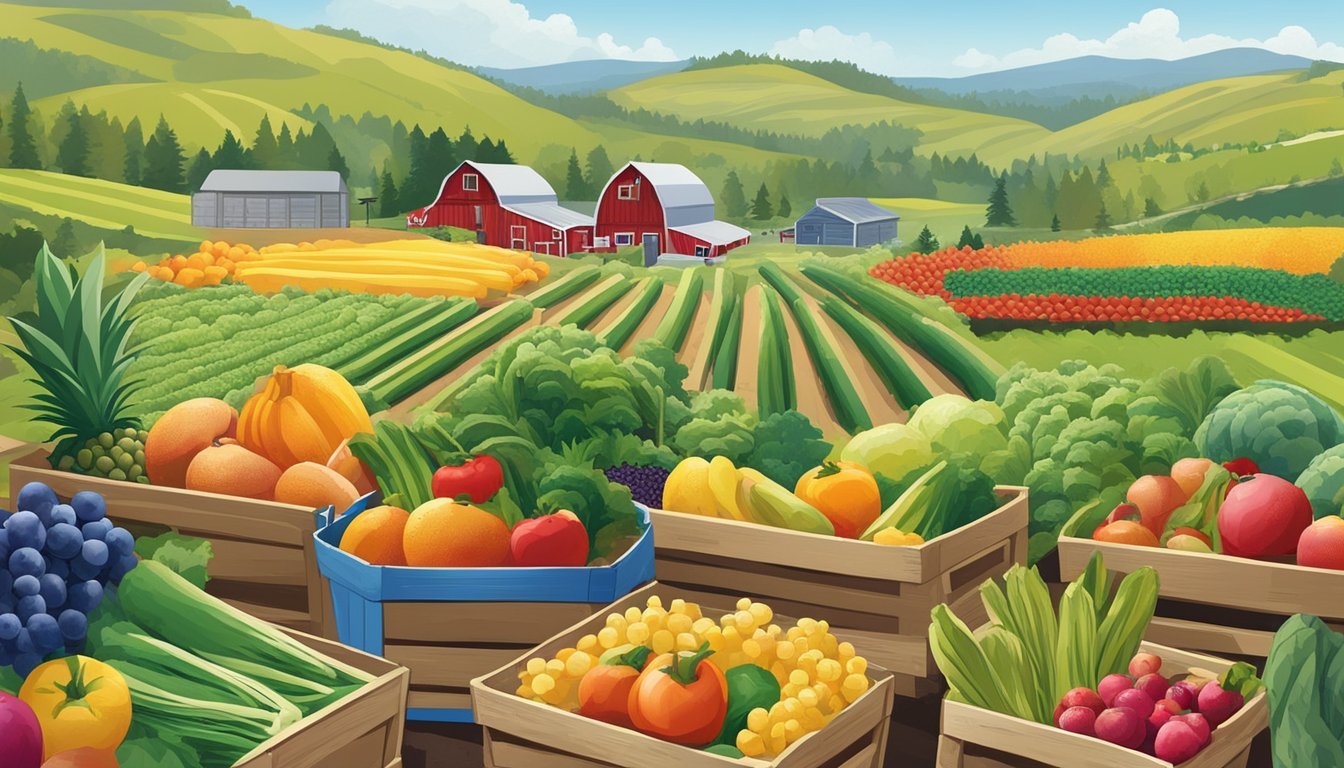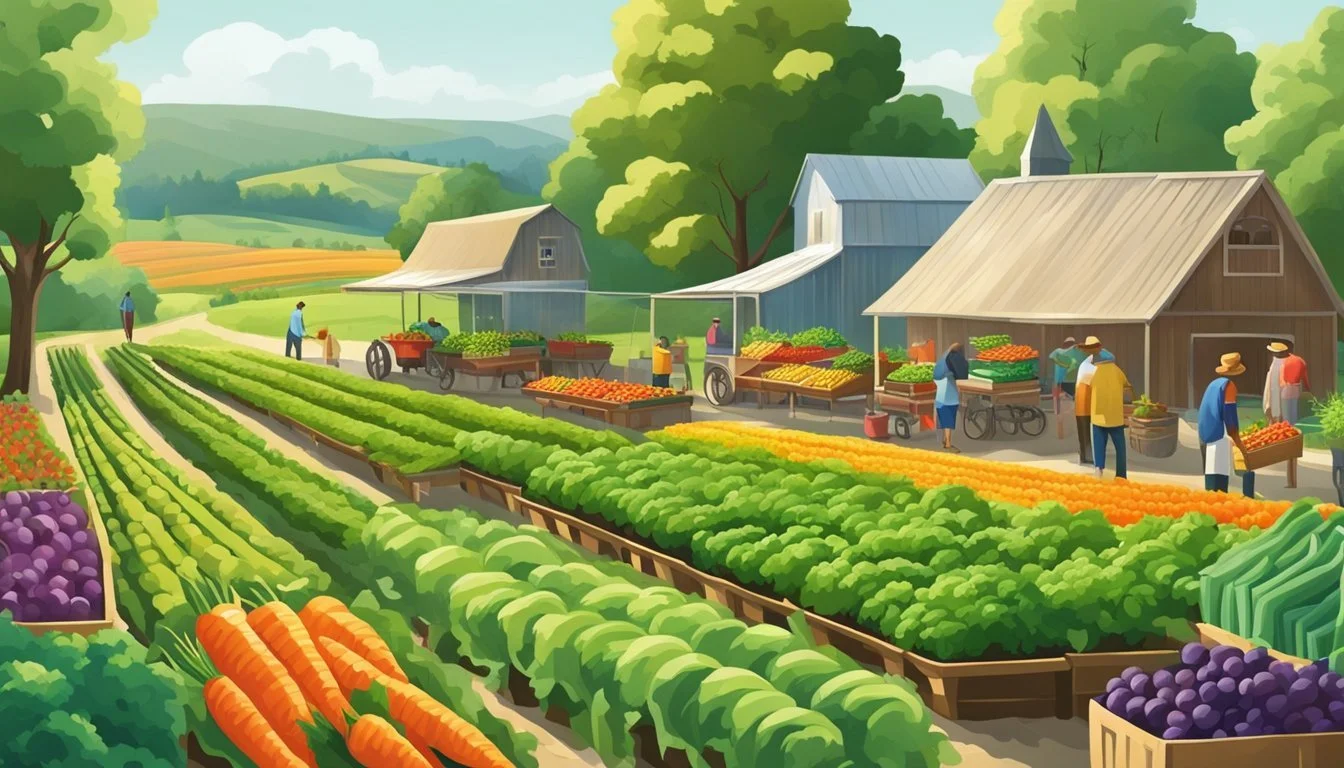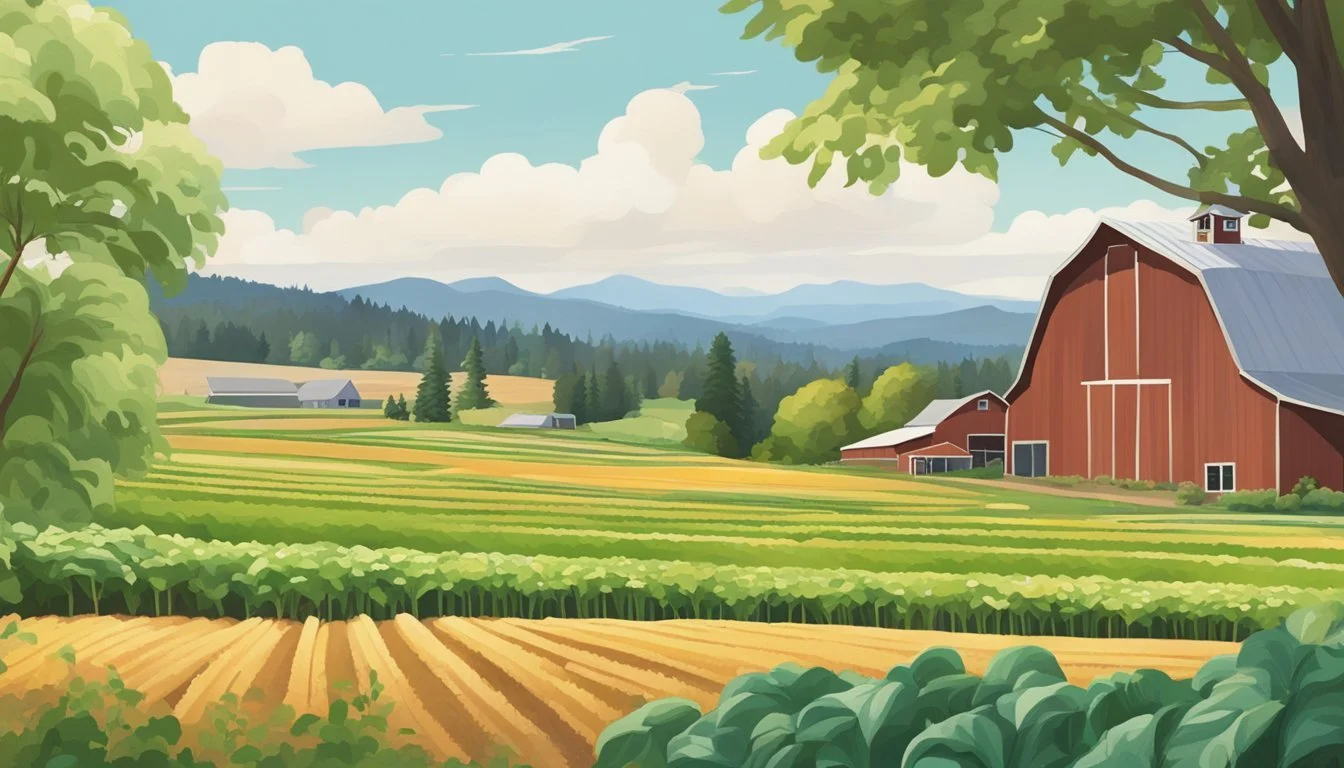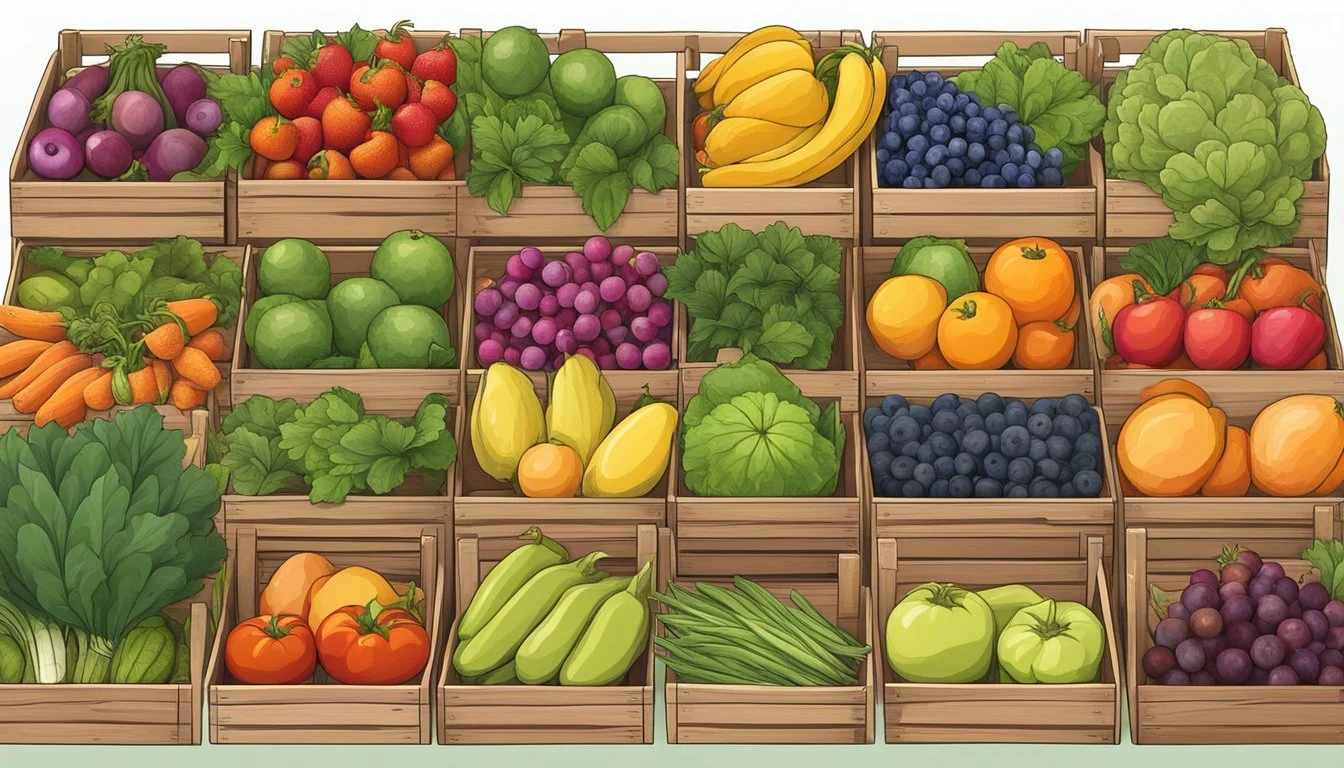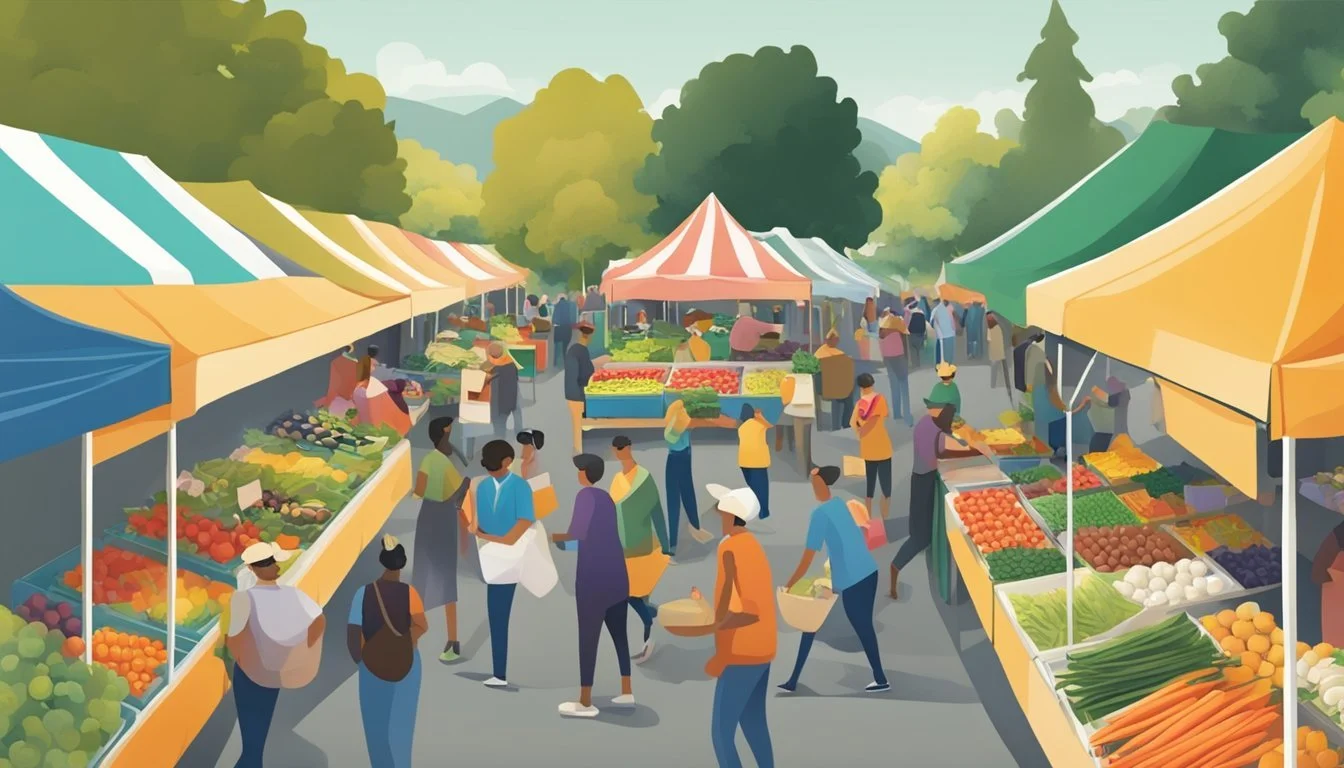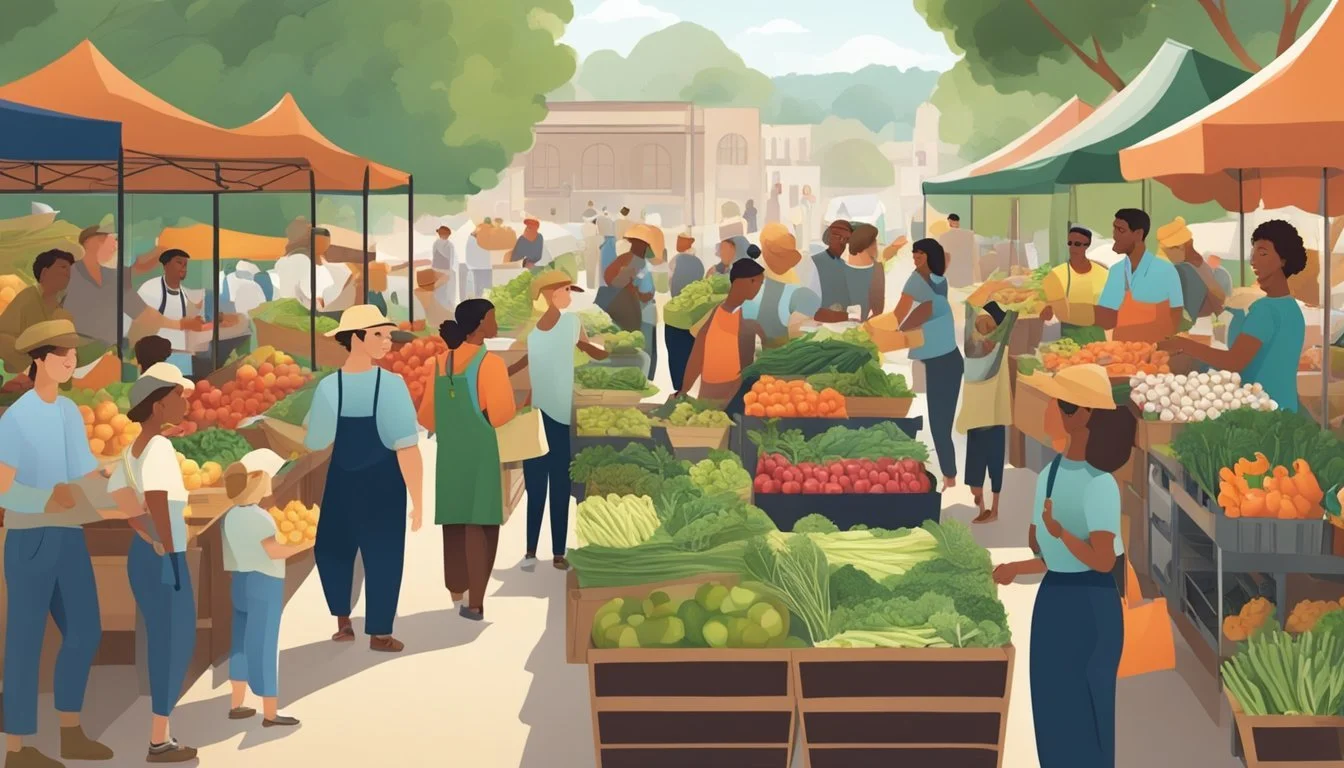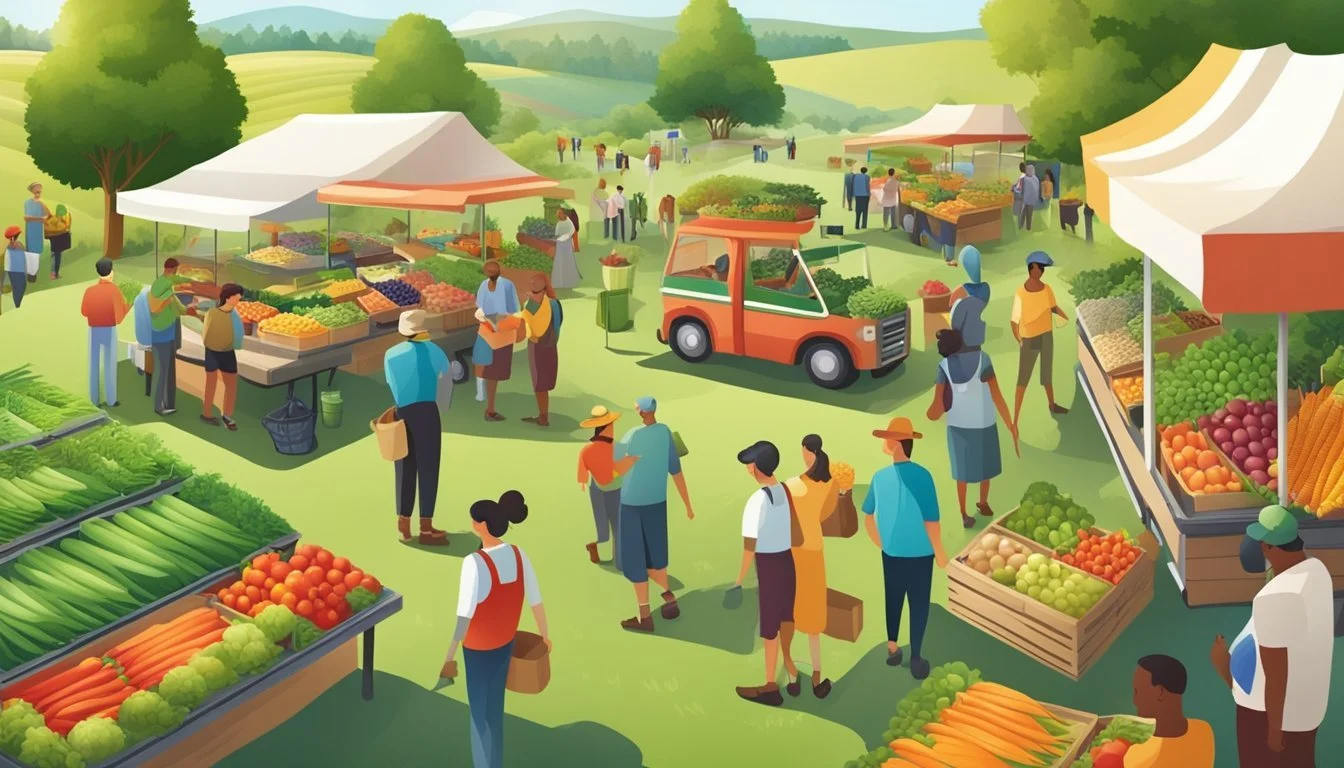Community Supported Agriculture (CSA) in Eugene, OR
A Guide to Local Farm Shares
Community Supported Agriculture, commonly known as CSA, is a flourishing and vital part of Eugene, Oregon's local food system. This model allows residents to buy seasonal produce directly from local farms by purchasing a share of the harvest at the beginning of the growing season. In Eugene, CSAs have gained popularity for providing a reliable source of fresh, locally-grown fruits, vegetables, herbs, and flowers. The benefits of CSAs are multi-fold, offering consumers the opportunity to enjoy the freshest possible produce while supporting the local economy and promoting sustainable agricultural practices.
In Eugene's CSA model, members typically receive a weekly or bi-weekly box of produce throughout the farming season. This arrangement creates a symbiotic relationship between farmers and consumers, ensuring a market for farmers' goods while allowing members to experience the rhythm and diversity of the agricultural season. Participating in a CSA also encourages members to explore new foods and cooking methods, diversifying diets and fostering a deeper appreciation for the region's agriculture.
Moreover, Eugene's CSA options are varied, with some farms integrating organic and biodynamic practices, while others offer delivery services, flexible pickup times, and special discounts for low-income households and seniors. Embarking on a CSA membership in the Eugene area connects individuals to a network of food producers committed to environmental stewardship and community well-being, reinforcing the values of health, community, and sustainability that resonate throughout the region.
What Is CSA?
Community Supported Agriculture (CSA) represents a partnership where consumers and farmers share in the risks and rewards of agricultural production. Its focus on organic and sustainable practices aims to foster local economies and healthier food systems.
Defining CSA
Community Supported Agriculture (CSA) is a model where individuals commit to supporting a farm operation upfront, typically at the beginning of the growing season. In Eugene, OR, CSA members receive weekly or monthly shares of the farm's produce, which often includes a variety of organic and seasonal vegetables, fruits, herbs, and sometimes flowers. This arrangement benefits consumers with fresh, local produce and allows farmers to plan with a secure income base.
History of CSA
The historical development of CSA began in the 1960s in Switzerland and Japan as a response to food safety concerns and the urbanization of agricultural land. It was introduced to the United States in the 1980s, and since then, has grown in popularity. CSAs have become a staple in many communities, including Eugene, where they contribute to a sustainable food system by encouraging local agricultural practices and fostering direct relationships between farmers and consumers.
Benefits of CSA
Community Supported Agriculture (CSA) in Eugene, Oregon, stands as a testament to a sustainable and health-conscious food system bolstering regional agriculture.
Environmental Impact
CSAs in Eugene prioritize sustainable and often organic farming practices, which are less damaging to the local ecosystem. By choosing methods that nurture the soil and surrounding habitats, these farms minimize their environmental footprint. Seasonal harvesting aligns with the natural growth cycles, ensuring that the environmental impact is kept to a minimum.
Soil Health: Organic farming practices enhance soil fertility.
Wildlife Protection: Sustainable farming supports biodiversity.
Economic Advantages
When consumers participate in a CSA, they directly support regional farmers, helping to create a robust local economy that is less dependent on external resources. This model ensures that money spent on food stays within the community, leading to economic stability and resilience.
Advantages include:
Local Economy: Dollars circulate within the community.
Support for Small Businesses: Farmers receive a fair share of the profits.
Health and Nutritional Benefits
CSA members enjoy the fresh produce harvested at its peak, which is richer in nutrients compared to goods that travel long distances. Access to organic produce means fewer pesticides and chemicals, leading to better health outcomes.
Nutrient Density: Seasonal produce contains optimal levels of vitamins and minerals.
Access to Diverse Crops: CSA boxes often include a variety of vegetables and fruits, encouraging a balanced diet.
CSA Farms in Eugene, OR
Eugene, OR, boasts several Community Supported Agriculture (CSA) farms where members receive shares of fresh, organic produce directly from the local farmers. These farms emphasize sustainable and pesticide-free farming practices.
Camas Swale Farm
Camas Swale Farm offers members a bountiful variety of organically grown vegetables, herbs, and fruits. They are known for their commitment to sustainable agriculture, providing the Eugene, Springfield, and Coburg communities with seasonal selections from farm to table.
Riverland Family Farms
Riverland Family Farms operates on the principles of environmental stewardship, producing a diverse array of crops. Shares from Riverland include seasonal fruits and vegetables, underlining their dedication to pesticide-free farming.
Organic Red Barn Farm
Organic Red Barn Farm stands out for their organic practices, providing CSA members with nutrient-rich, chemical-free produce. This farm supports the Eugene community through their participation in local farmers markets, in addition to their CSA program.
Understanding CSA Memberships
Community Supported Agriculture (CSA) memberships in Eugene, OR, offer residents an opportunity to directly support local farms while receiving a portion of the harvest throughout the growing season. These memberships involve a mutually beneficial relationship between consumers and producers.
Types of Shares
Full shares typically provide a weekly box of farm produce enough to feed a family of four or individuals with high vegetable consumption. On the other hand, half shares are suitable for smaller households or those new to CSA participation. Shares may also vary in content throughout the season, providing members with a diverse array of farm-fresh products.
Cost of Participation
The price of CSA shares is usually determined before the start of the season and can range from $400 to $700 annually, depending on the farm and type of share. Some CSAs offer flexibility through payment plans allowing members to pay in installments. This upfront investment helps cover the initial costs for farmers, ensuring financial stability and shared risks between the CSA members and the farm.
Member Responsibilities
CSA membership often entails a commitment beyond financial participation. Members may engage in the farming process through work trades or volunteer opportunities. They are also expected to share in the risks of farming, such as crop failures due to weather conditions. However, it is not just about shared risks; it's also about enjoying the rewards of abundant harvests and being part of a community that values local, sustainable agriculture.
The Farming Practices
In Eugene, OR, the farming practices at Community Supported Agriculture (CSA) farms focus on sustainable and eco-friendly techniques. These include organic and biodynamic methods tailored to the stewardship of the land.
Organic and Biodynamic Methods
Eugene's CSA farms adhere to organic standards which prohibit synthetic pesticides and fertilizers, promoting healthier soil and crops. They integrate biodynamic farming principles, considering the farm as a whole organism, using preparations that enhance the soil's nutrient cycle and emphasizing the importance of crop rotation and composting. This holistic approach is designed to invigorate the land and yield produce that is both nutritious and rich in flavor, thus sustaining not just the soil but also the people it feeds.
Pesticide-Free and Natural Approaches
These CSA farms employ pesticide-free and natural approaches to pest management, prioritizing the health of both consumers and the ecosystem. Farmers utilize techniques such as natural predators, beneficial insects, and barriers to control pests, rather than relying on harmful chemicals. Regenerative practices are also in place to ensure that they leave the land in better condition for future farming. Overall, these methods contribute to a model of agriculture that supports and preserves the natural environment.
CSA Produce Selection
Community Supported Agriculture in Eugene, OR offers a rich variety of produce selections sourced directly from local farms, ensuring fresh flavors and reducing food waste by tailoring shares to seasonal availability.
Vegetables and Fruits
Local CSAs provide an abundance of vegetables and fruit to their members. Members can expect farm-fresh vegetables such as leafy greens, root vegetables, and seasonal specialties. Fruit selections often include berries, tree fruits, and region-specific varieties that are picked at peak ripeness for optimal flavor.
Leafy Greens: kale, spinach, lettuce
Root Vegetables: carrots, beets, radishes
Berries: strawberries, blueberries, raspberries
Tree Fruits: apples, pears, plums
Meat, Eggs, and Cheese
Beyond produce, some Eugene CSAs offer options for meat, eggs, and cheese. These are sourced from local livestock raised responsibly. Eggs are typically available year-round, while meat and cheese offerings can vary with the season.
Meat: pasture-raised chicken, pork, beef
Eggs: free-range and farm-fresh eggs
Cheese: a selection of artisanal cheeses
Seasonal Specialty Items
CSAs in Eugene also curate seasonal specialty items that highlight the diversity of local agriculture. These items might include heirloom variety fruits and vegetables, fresh herbs, and other unique products from the region. They encourage culinary exploration and bring unique flavors to the table.
Spring: asparagus, artichokes
Summer: heirloom tomatoes, sweet corn
Fall: winter squash, figs
Winter: root cellar storage crops, preserves
Local CSAs often offer flexible options such as farm pickup or delivery to accommodate member needs. Shares can be customized to individual preferences, and the direct connection with farmers can help ensure that only the freshest and highest-quality products are included in the CSA selection, further enriching the community's access to premium local produce.
Community and CSA
Community Supported Agriculture in Eugene, OR has seen significant growth as consumers increasingly seek out fresh, local produce while supporting their local farmers. Through signing up for CSAs, community members establish a direct marketing relationship with producers, fostering consumer trust, enriching local communities, and creating educational opportunities.
Building Consumer Trust
Consumers in Eugene place a high value on knowing where their food comes from, and CSAs facilitate this transparency. By partnering with farms like Camas Swale and Friends and Family Farm, consumers can directly engage with the source of their vegetables, herbs, and fruits. This engagement results in a higher degree of trust, as members can witness the farm's commitment to responsible soil management and organic standards firsthand.
Strengthening Local Communities
CSAs are not just food subscriptions; they're investments in community well-being. Groundwork Organics offers a Winter CSA that draws Eugene residents closer through shared pickup sites. Initiatives like FOOD For Lane County's CSA program go further by intertwining local produce provision with support for programs like the Youth Farm, thus helping to nourish and empower the local community through every subscription filled.
Educational Opportunities
CSAs are educational platforms that provide insight into sustainable agriculture practices. They offer hands-on experiences for consumers who want to understand the seasonal nature of food production. For example, the signup process with Friends and Family Farm includes information on their commitment to diversity with native fruit trees and berry shrubs, thus educating members on the importance of biodiversity in agriculture.
Challenges in CSA
Community Supported Agriculture (CSA) models in Eugene, OR, encounter several challenges that can impact both producers and consumers. These encompass the inconsistent nature of crop yields, financial uncertainties, and the complexities of aligning supply with consumer demand.
Dealing with Fluctuating Crop Yields
CSAs in Eugene face the uncertainly of varying crop outputs due to multiple factors, including weather impacts and environmental conditions. They share the risk of low yield seasons with members, which sometimes leads to fewer deliveries than expected. This unpredictability requires careful planning and clear communication with subscribers to manage expectations.
Managing Financial Risks
Financial risks are inherent in CSA operations. Farmers absorb upfront costs with the assumption that subscription fees will cover these expenses. When faced with unforeseen circumstances such as crop failures or market fluctuations, CSA providers must navigate these challenges without the guarantee of immediate financial return, often relying on the community's commitment to shared risk.
Balancing Supply and Demand
Maintaining equilibrium between supply and demand can be tricky for a CSA. Producers must accurately forecast demand to determine the right amount of produce for cultivation. Subscriptions create a dedicated customer base, but the CSA must also remain flexible to accommodate variations in weekly or seasonal demand without overproducing or wasting resources.
CSA and Technology
Community Supported Agriculture in Eugene has embraced technology to streamline operations, enhance sales, and facilitate engagement with members. Modern software solutions, online platforms, and digital transaction methods have significantly altered how CSAs interface with the public.
Software for CSA Management
Farmers use specialized CSA management software to keep track of subscriptions and effectively manage their operations. These systems allow producers to monitor member preferences, manage harvest data, and coordinate distribution logistics with significantly greater efficiency. Real-time inventory updates enable a more accurate match of supply with member demand, ensuring the sustainability of the CSA model.
Online Marketing and Sales
CSAs in Eugene leverage online marketplaces and social media platforms to market their offerings. They use these virtual spaces for storytelling about their farms, engaging with members, and advertising produce availability. An online presence has become indispensable for reaching a broader audience, allowing farms to sell market-style subscriptions where members can choose their products while supporting local agriculture.
Digital Payments and Sign-ups
The sign-up process for CSA memberships has become more accessible thanks to digital platforms. Prospective members can join through user-friendly websites, committing to seasonal subscriptions with just a few clicks. Payment for these subscriptions is often handled digitally as well, providing a secure and convenient way for members to transact and maintain their membership, while giving farmers predictable and timely cash flow.
Future of CSA
The future of Community Supported Agriculture (CSA) is gaining significant momentum, with growing interest in local, sustainable food sources. In Eugene, OR, this trend is particularly pronounced, reflecting a community that values ecological stewardship and locally-sourced produce.
Trends and Growth Projections
The CSA model has seen a steady increase in popularity across the United States, driven by consumer demand for fresh, local produce and a growing consciousness about the environmental impact of food production. Data suggests continued growth in CSA participation, with more farms adopting this model for its benefits in securing upfront capital and fostering direct relationships with consumers.
In particular, Eugene's CSAs exhibit a trend towards diversifying produce and adding value to shares. Innovations such as adding native fruit trees, berry shrubs, and perennial crops signal an evolution in the offerings of CSA programs, thus attracting a broader demographic interested in unique and varied produce.
Potential for Expansion in Eugene
Eugene's fertile land and supportive local communities present an ideal opportunity for CSA expansion. The region's farms are increasingly leveraging biodynamic farming practices and organic standards, which are critical touchpoints for Eugene's consumer base.
Key Factors for Growth:
Increase in planting native species and perennial crops
Expansion of pickup and delivery locations
Outreach and education to raise awareness about the benefits of CSA models
Regional expansion for CSAs in Eugene may include increased support from local institutions and partnerships with restaurants that prioritize farm-to-table menus. This synergy between producers and consumers indicates a promising trajectory for the CSA movement within the region.
Eugene's CSA future aligns with the broader trends of sustainability and health, positioning it as a burgeoning hub for community supported agriculture growth.

